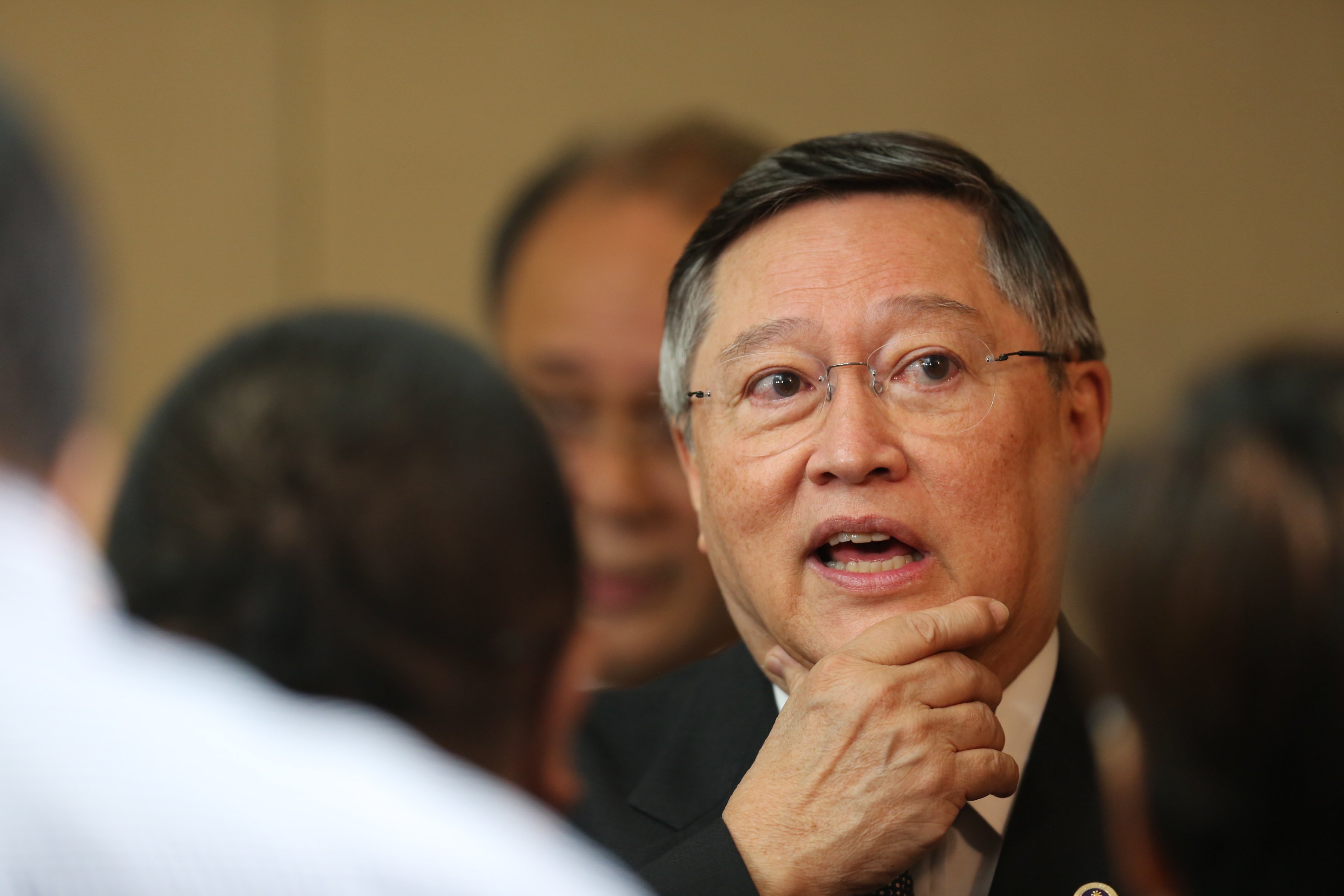
Finance Secretary Carlos G. Dominguez III. MALACANANG FILE PHOTO
MANILA, Philippines–The Philippines is pushing for a wider coverage of a so-called “green” bonds facility in the Asean region to better address the ill effects of climate change, Finance Secretary Carlos G. Dominguez III said Thursday.
“The government is looking at expanding the coverage of the Asean Framework for Green Bonds to cover such sectors as transportation, infrastructure, and commercial banking. We hope to mainstream access to green financing through the banks and microfinance institutions,” Dominguez said in a speech during the Forum on Green Finance Towards a Sustainable Philippines organized by the British Embassy Manila.
The Asean Green Bond Standards was crafted by the Asean Capital Markets Forum in 2016 to facilitate financing for “green projects” in the region, according to the Securities and Exchange Commission (SEC).
“Asean Green Bonds” were defined by the SEC as “bonds and sukuk [Islamic bonds] which comply with the Asean Green Bond Standards, where the proceeds will be exclusively applied to finance or refinance, in part or in full, new and/or existing eligible green projects.”
These bonds can be issued by Asean-based entities as well as non-Asean issuers who will finance green projects within the region.
According to the SEC, green projects included the following: clean transportation, climate change adaptation, energy efficiency, environmentally sustainable management of living natural resources and land use, green buildings, pollution prevention and control, as well as renewable energy.
Dominguez noted that in August last year, the SEC green-lighted guidelines on green bond issuances under the regional framework.
“This provides us a reference point for determining the eligibility of green projects covering renewable energy, energy efficiency, pollution prevention and control, environmentally sustainable management of living natural resources and land use, clean transportation and adaptation of green buildings,” the Finance chief said.
“The Philippines is among the most vulnerable to the effects of climate change. We have seen how increasingly severe weather conditions inflict a growing cost on our economy, increase the vulnerability of our communities and threaten our food security,” Dominguez noted.
As such, “we need to put in our best efforts to turn back climate change and improve resilience to minimize economic dislocation,” he said. /jpv